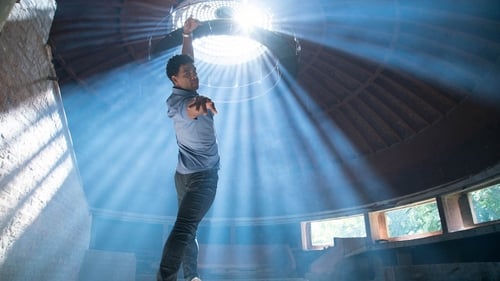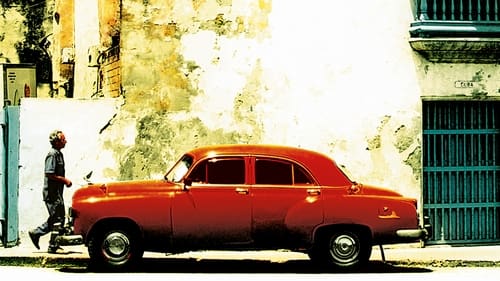
Carmela

M (voice)
When evil M steals the water from Buenaventura and kidnaps Sara, Samuel and his friends board the powerful Knowledge Engine to set out on a dangerous adventure of epic proportions that will lead them to a distant and deadly world called Antares.

Maestra Chery
Yuli is the nickname given to Carlos Acosta by his father, Pedro, who considers him the son of Ogun, an African god and a fighter. As a child Yuli avoids discipline and education, learning from the streets of an impoverished and abandoned Havana. His father, however, has other ideas, and knowing that his son has a natural talent for dance, sends him to the National Ballet School of Cuba. Despite his repeated escapes and initial poor behaviour, the boy is inevitably drawn to the world of dance, and begins to shape his legendary career from a young age, becoming the first black dancer to be cast in some of the most prestigious ballet roles, originally written for white dancers, in companies such as the Houston Ballet or the Royal Ballet in London.

Esperanza
A blind woman living alone in the country tells tales to a criminal holding her captive to keep him calm.

Rosa
In 90's Habana, a nurse and a home builder, hopelessly in love, live happily married. A circumstantial fact of her past life will put their feelings to test and undermine the most elemental principles.

A mother struggles to hold her family together after her son succumbs to a disease that leaves him disabled.

Ana
Ana is a telenovela actress but because of financial troubles resorts to producing a prostitution documentary under false pretences.

Rosa (Amiga de Novia de Angelito) (segment "El Yuma")
A young American boy is trying to break into the acting business, and goes to Cuba during a film festival.

Amor Crónico follows Grammy-nominated, Cuban-born CuCu Diamantes as she embarks on a whirlwind tour of her home country. Interweaving glamorous live performances with a fictional romance, the film pays tribute to the history of cinema in surreal fashion. Backed by a high energy Latin soundtrack, Cucu's journey is a visual love poem to the sites, sounds, and people of Cuba.

Yoli always lived with her mother in a humble neighborhood in Havana. Until one day, a boy invites him to leave and Yoli decides to wait for him, trying to change his routine, even if it is for a day.

Zobeida
An unclaimed fortune, grown for centuries in a British bank account, becomes a potential windfall for Bernadito Castiñeiras and the residents of the tiny village of Yaragüey, Cuba. To receive his massive inheritance check, Bernadito must prove his lineage to the Castiñeiras nuns who first populated the region. In an isolated and impoverished town where many residents share the same surname, a feud breaks out between the "Castiñeiras" and "Castiñeyras" families.

Based on the life of Benny Moré, the film concentrates on a period in the early 1950s when Moré leaves the orchestra of Duany and starts his own 'Banda Gigante'. In flashback we learn of his success in Mexico. Moré is caught in the events connected to Batista's coup in Cuba. Also, he tours Venezuela, where he suffers the machinations of a vengeful businessman. After collapsing and being hospitalised, Moré swears off alcohol. Some years later, he encounters his old band-mate Monchy, fallen on hard times.

Argentine 40-year-old Laura, visiting Cuba for the first time on business, is divorcing her husband back in Buenos Aires. She's soon involved with smooth-talking cab driver Frank. Garment manufacturer Francisco, having lost his wife, children, and home, has traveled to Cuba to kill himself, but Frank's mother realizes that Francisco is the teenage lover who got her pregnant. In other relationships, a gay couple argue over whether or not to remain in the closet, and two documentary filmmakers have career conflicts.

Laurita
The 50-minute "Madagascar" has the resonance and eloquence of the best poetry, as it deftly turns an adolescent's search for identity into a metaphor for post-revolutionary Cuba. Laura is a professor at a shabby, stultifying college. Her daughter, Laurita, stops going to school, wishes to move to Madagascar and quickly races through several phases. One day, she looks like a heavy-metal fan, another like a bohemian who weeps at poetry and art. Slowly, she crosses the line from ordinary adolescent confusion to intense neurosis and beyond, finally becoming so obsessed with religion and good works that she brings 10 homeless children into the cramped house she shares with her mother and grandmother.












